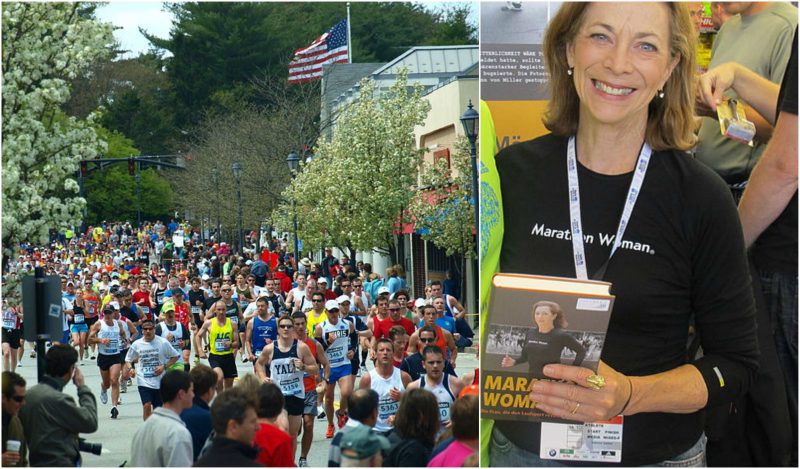For the past 120 years, the third Monday of April (Patriots’ Day) is reserved for the oldest annual marathon in the world, and one of the best-known road racing events – the Boston Marathon.
Inspired by the spirit and greatness of the marathon at the first modern Olympic Games in Athens in 1896, Boston Athletic Association member and inaugural US Olympic Team Manager John Graham decided to organize a marathon in Boston, United States.
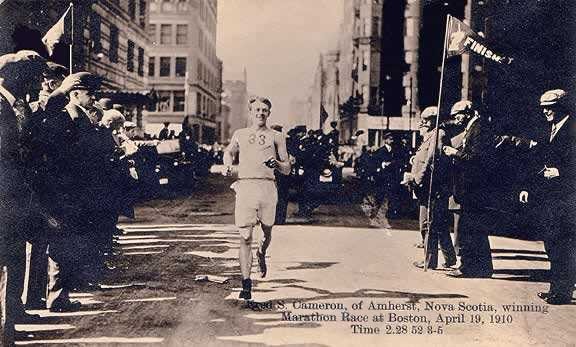
On April 19, 1897, 15 runners made history when they started the 24.5 miles (39.4 km) marathon, which has been held every year since then, even during the World War years. John J. McDermott of New York ran the 24.5-mile course in 2:55:10, and forever secured his name in sports history as the first winner of the Boston Marathon.
Women were not allowed to enroll the Boston Marathon, until 1972. However, in 1966, 23-year-old Roberta “Bobbi” Gibb decided to write an application and expected to receive a letter from the Boston Athletic Association with her race number, but she was informed that her request for the application had been denied. The race director, Will Cloney wrote her that women were not allowed to run more than a mile and a half competitively and that they were not physiologically capable of running marathon distances.
Gibb was furious and couldn’t believe what Will Cloney wrote to her. Now she wanted more than ever to run the Boston Marathon and prove that Cloney was wrong.
She took her brother’s Bermuda shorts and a hoodie to hide her long hair and hid in a cluster of bushes near the starting line, before jumping into the race. Gibb defied social norms and out of 540 entrants, finished in 126th place, thus becoming the first women to have run the entire Boston Marathon.
Next year another woman named Kathrine Switzer made history when she became the first female to enter the Boston Marathon officially. Now, 50 years later Switzer did it again.
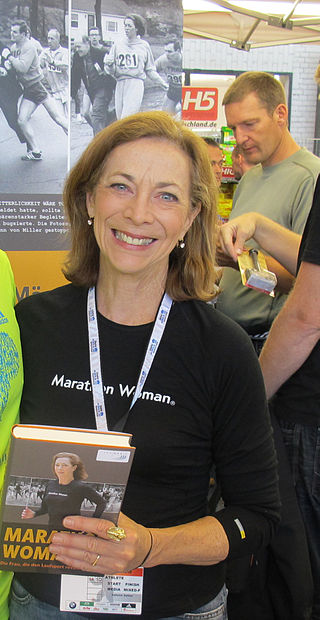
Roberta “Bobbi” Gibb tried to register for the marathon in 1966, but her request was denied. One year later, Switzer managed to register using her gender-neutral initials K.V. Switzer. In 1967 when Switzer registered for the marathon, the entry form didn’t include a spot to select gender.
In an essay for The New York Times, Switzer wrote that “the marathon was a man’s race in those days; women were considered too fragile to run it.” She added that she trained hard and was confident that she had the strength to do it.
20-year-old Kathrine Switzer started the 1967 marathon, but an incident occurred a few miles into the course of the Boston Marathon when race organizer Jock Semple realized that there was a girl in the race wearing Boston Marathon Bib No. 261. He immediately ran after her and tried to rip off her bib number and remove her from the race.
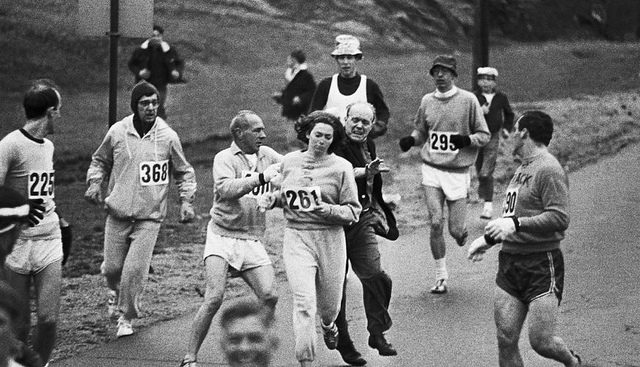
“I turned, and I saw this fierce face, the fiercest face I’d ever seen. He grabbed me and screamed, ‘get the hell out of my race’ and tried to rip off my bib number. It happened in a flash, but it was a flash that changed my life,” Switzer told Al Jazeera.
Her running partner and fellow Syracuse student Tom Miller shoved Semple aside, so Switzer was able to proceed and finished the race in 4 hours, 20 minutes.
She made the headlines throughout the United States almost instantly and helped to empower millions of women all around the world in the years that followed. She also became an outspoken activist for women’s long-distance running and thanks to her efforts in 1972 women were officially authorized to run the Boston Marathon.
She said that throughout the years her “bib number from the first Boston Marathon, ‘261’, has become a number meaning “fearless in the face of adversity” and women around the world are rallying to embrace the spirit of it.” Together with her friends, Switzer formed 261 Fearless, a nonprofit organization established to empower women around the world through the transformative vehicle of running.
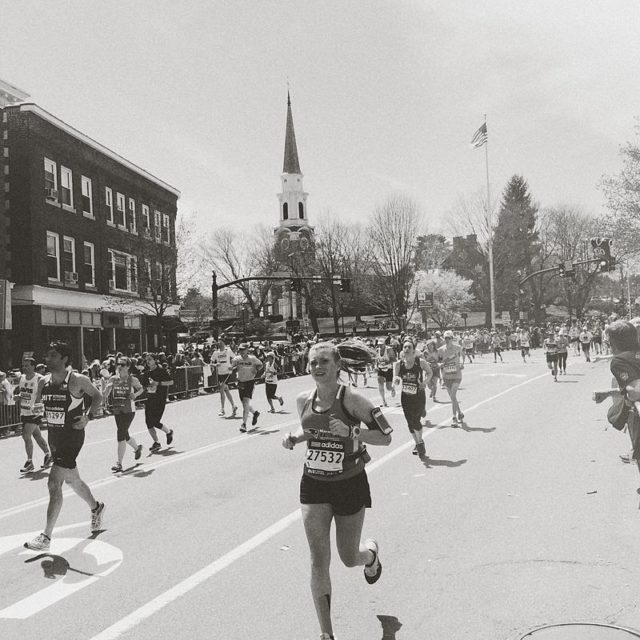
50 years after Switzer became the first woman to officially enter the Boston Marathon she crossed the finish line once again wearing the same legendary bib number from the first Boston Marathon, ‘261’. The Boston Athletic Association announced that the number would be officially retired in honor of Kathrine Switzer.
The 70-year-old finished the race in 4 hours, 44 minutes, 31 seconds. During her run, Switzer pointed out the spot on the course where 50 years ago Jock Semple tried to rip off her bib number and remove her from the race.
